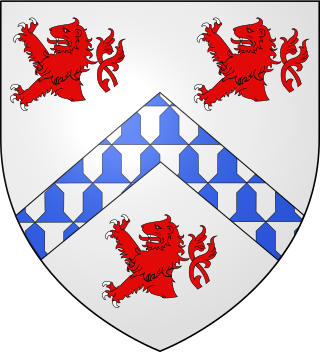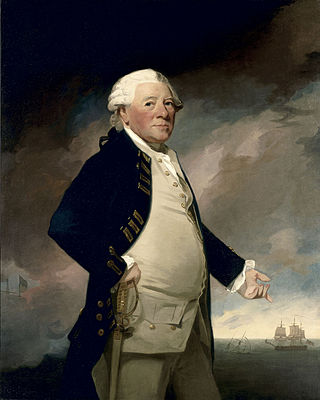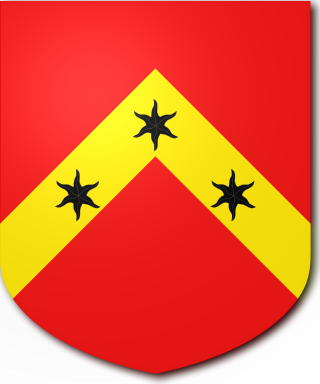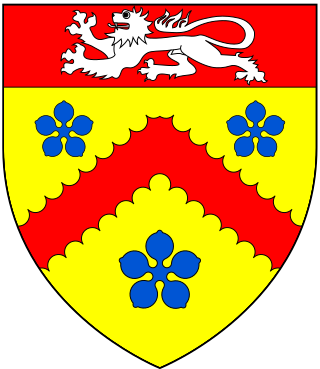
The Frankland baronetcy, of Thirkelby in the County of York, is a title in the Baronetage of England, created on 24 December 1660 for William Frankland. He later represented Thirsk in Parliament.
There have been ten baronetcies created for persons with the surname Browne, six in the Baronetage of Great Britain, three in the Baronetage of Ireland and one in the Baronetage of Nova Scotia. Only one creation is extant as of 2010. Three of the creations were for members of the Browne family headed by the Viscount Montagu.

There have been two baronetcies created for persons with the surname Fisher, both in the Baronetage of England.
There have been five baronetcies created for people with the surname Napier, three in the Baronetage of England, one in the Baronetage of Nova Scotia and one in the Baronetage of the United Kingdom. As of 2014 two of the creations are extant.
There have been two baronetcies created for members of the Blackett family, both in the Baronetage of England. One creation is extant as of 2013. The Blackett family can be traced back to the Blacketts/Blakheveds of Woodcroft, County Durham, some of whom became highly successful in the lead and coal mining industries in Northumberland and County Durham.

There have been seven baronetcies created for persons with the surname Parker, three in the Baronetage of England, two in the Baronetage of Great Britain and two in the Baronetage of the United Kingdom. Two of the creations are extant as of 2008. Though none of the different families of baronets were related, several supplied a number of flag officers to the Royal Navy.

There have been twenty one baronetcies created for persons with the surname Williams, eight in the Baronetage of England, three in the Baronetage of Great Britain and ten in the Baronetage of the United Kingdom. Only six of the creations are extant as of 2017.
There have been three baronetcies created for persons with the surname Everard, one in the Baronetage of Ireland, one in the Baronetage of England and one in the Baronetage of the United Kingdom. Only one creation is extant as of 2010.
There have been six baronetcies created for persons with the surname Thomas, three in the Baronetage of England, one in the Baronetage of Great Britain and two in the Baronetage of the United Kingdom. Two of the creations are extant as of 2016.

The Carr Baronetcy, of Sleaford in the County of Lincolnshire, is a title in the Baronetage of England. It was created on 29 June 1611 for Edward Carr who was Sheriff of Lincolnshire in 1614. The 3rd Baronet was Chancellor of the Duchy of Lancaster and a Member of Parliament for Lincolnshire in the House of Commons.
There have been three baronetcies created with the surname Shirley, two in the Baronetage of England and one in the Baronetage of Great Britain. Only the first creation remains extant as of 2016.

There have been three baronetcies created for persons with the surname Cooke, two in the Baronetage of England and one in the Baronetage of Ireland. One creation is extant as of 2013.

There have been three baronetcies created for persons with the surname Carew, two in the Baronetage of England prior to 1707, one in the Baronetage of Great Britain.
The Firebrace Baronetcy, of London, was a title in the Baronetage of England. It was created on 28 July 1698 for Basil Firebrace, Member of Parliament for Chippenham from 1690 to 1692. He was the son of Sir Henry Firebrace. The third Baronet sat as Member of Parliament for Suffolk. The title became extinct on his death in 1759.
The Ellys Baronetcy, of Wyham in the County of Lincoln, was a title in the Baronetage of England.
There have been two baronetcies created for persons with the surname Briggs, one in the Baronetage of England and one in the Baronetage of the United Kingdom. Both creations are extinct.
There have been three baronetcies created for persons with the surname Fortescue, one in the Baronetage of Nova Scotia and two in the Baronetage of England. Two of the creations are extinct while the other is dormant.
Sir Hugh Speke, 1st Baronet was an English politician who sat in the House of Commons in 1661.
Sir George Speke, 2nd Baronet was an English politician who sat in the House of Commons between 1675 and 1683.

The Russell baronetcy, of Chippenham in the County of Cambridge, was created in the Baronetage of England on 19 January 1629 for William Russell. He represented Windsor in Parliament. The 2nd Baronet sat as Member of Parliament for Cambridgeshire under the Commonwealth. The title is presumed to have become extinct on the death of the 10th Baronet in 1804.








